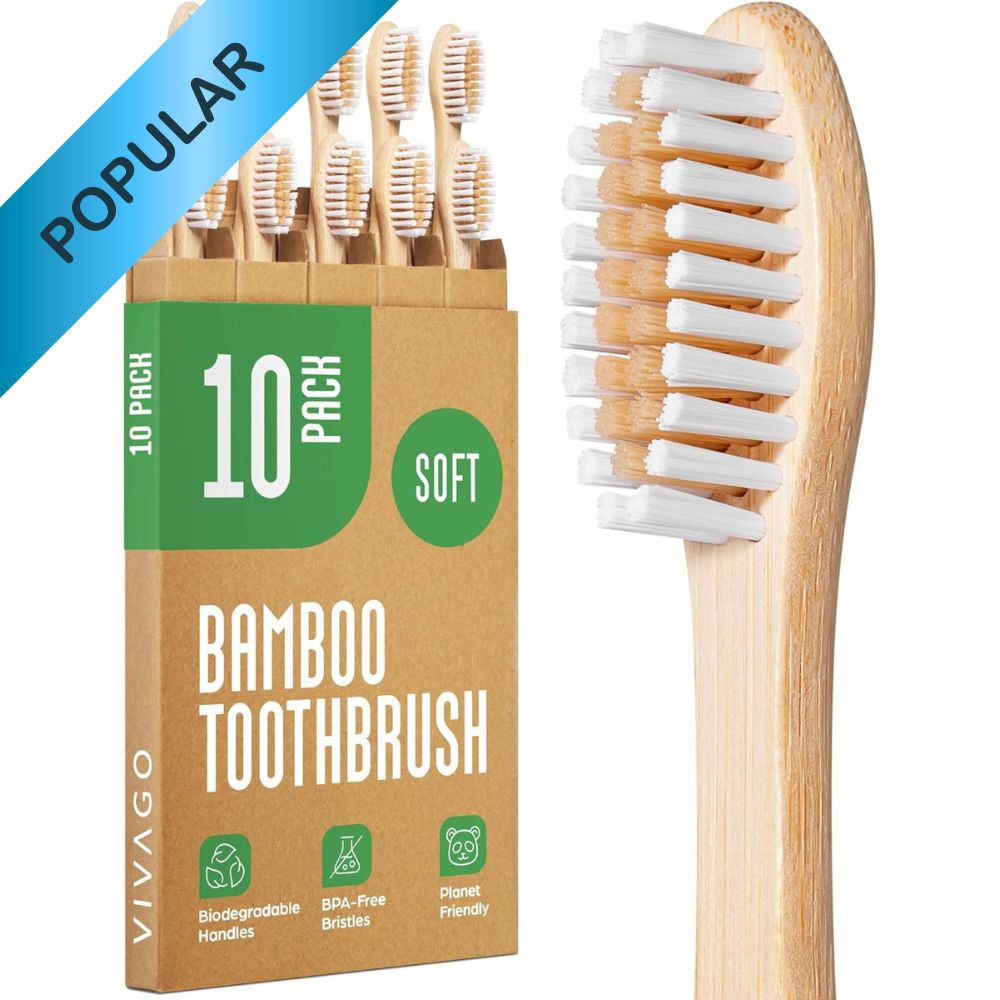Tooth nerve pain can strike without warning, turning your day into a nightmare. The intense, sharp jolt that radiates through your jaw or gums usually signals an underlying dental issue such as tooth decay, an exposed root, or even nerve inflammation. While a dental visit is essential for long-term relief, knowing effective home remedies for tooth pain nerve can help you manage the discomfort quickly. In this guide, we’ll walk you through ten fast-acting, dentist-approved remedies you can try at home.
Note: These remedies are not substitutes for professional dental care. If pain persists for more than 1–2 days, consult a licensed dentist immediately.
- What Causes Tooth Nerve Pain?
- Top 10 Home Remedies for Tooth Pain Nerve Relief
- 1. Clove Oil – Nature’s Numbing Agent
- 2. Saltwater Rinse – Cleansing and Soothing
- 3. Cold Compress – Quick Pain Blocker
- 4. Hydrogen Peroxide Rinse – Antibacterial Boost
- 5. Garlic – Natural Antibiotic
- 6. Peppermint Tea Bags – Soothing Relief
- 7. Vanilla Extract – Alcohol-Driven Pain Relief
- 8. Turmeric Paste – Anti-Inflammatory Powerhouse
- 9. Over-the-Counter Dental Gels
- 10. Elevation – Reduce Blood Pressure Around the Tooth
- Additional Tips for Managing Tooth Nerve Pain
- When to See a Dentist
- Frequently Asked Questions
- Final Thoughts
What Causes Tooth Nerve Pain?
Tooth nerve pain, often described as sudden and severe, can be triggered by:
- Tooth decay that reaches the dentin or pulp
- Cracked or chipped teeth exposing nerve endings
- Gum recession leading to exposed roots
- Grinding or clenching that stresses nerves
- Old or loose fillings that allow bacteria to enter
- Tooth trauma from an injury or accident
According to the American Dental Association (ADA), toothaches are one of the most common reasons people seek emergency dental care. Tooth nerve pain specifically results from stimulation or damage to the pulp, where the nerves and blood vessels reside.
Remember: Don’t ignore a toothache that disrupts sleep or causes facial swelling—it could be an infection needing urgent care.
Top 10 Home Remedies for Tooth Pain Nerve Relief
If you’re dealing with sharp, throbbing tooth nerve pain and can’t get to the dentist right away, don’t worry—relief is still within reach. The following remedies are safe, effective, and quick to use at home. These natural and over-the-counter options work by reducing inflammation, numbing nerve sensitivity, and fighting bacteria that may be worsening the pain. Let’s explore the top 10 methods that can help you feel better—fast.
1. Clove Oil – Nature’s Numbing Agent
Clove oil contains eugenol, a natural anesthetic and antiseptic. It numbs the affected area, kills bacteria, and reduces inflammation.
How to use:
- Dab a cotton ball in clove oil
- Apply directly to the painful tooth or gum area
- Let it sit for 10–15 minutes before rinsing your mouth
- Repeat 2–3 times a day as needed
Pro Tip: You can also mix clove oil with coconut oil for gentler application, especially if your gums are sensitive.
2. Saltwater Rinse – Cleansing and Soothing
A warm saltwater rinse can reduce swelling, draw out infection, and clean the affected area. It’s a time-tested remedy recommended by dental professionals.
How to use:
- Mix 1/2 teaspoon of salt in a glass of warm water
- Swish it around your mouth for 30 seconds
- Spit it out and repeat every few hours
Why it works: Salt draws out fluids and toxins while promoting tissue healing.
3. Cold Compress – Quick Pain Blocker
A cold compress works by reducing blood flow to the affected area, thereby dulling the nerve signals and numbing the pain.
How to use:
- Wrap a few ice cubes in a clean cloth or towel
- Apply to the outside of your cheek near the painful area
- Keep it on for 15–20 minutes
- Use every 2–3 hours as needed
Effective for:
- Pain due to swelling
- Dental trauma
- Post-operative tooth extraction pain
Quick Tip: Never place ice directly on your skin or inside your mouth—it may damage tissues.
4. Hydrogen Peroxide Rinse – Antibacterial Boost
Hydrogen peroxide can help reduce bacterial load, loosen plaque, and soothe bleeding gums, which may indirectly help relieve nerve pressure.
How to use:
- Mix equal parts 3% hydrogen peroxide and water
- Swish around the mouth for 30 seconds
- Spit it out thoroughly and rinse with plain water
Precautions:
- Do not swallow hydrogen peroxide
- Use no more than once a day to avoid irritation
Research Insight: According to WebMD, hydrogen peroxide mouth rinses may help with gum health, which in turn supports nerve protection.
5. Garlic – Natural Antibiotic
Garlic has powerful antibacterial, antiviral, and anti-inflammatory effects. It can reduce harmful bacteria that may be aggravating the tooth nerve.
How to use:
- Peel and crush a garlic clove to release allicin
- Apply directly to the painful tooth or gum
- Leave for 5–10 minutes, then rinse your mouth
Alternative Method: Mix crushed garlic with a pinch of salt before application for added antiseptic benefits.
Semantic Tip: Garlic clove for dental pain, home antibiotic for oral infections
6. Peppermint Tea Bags – Soothing Relief
Peppermint contains menthol, known for its cooling and numbing properties. Peppermint tea bags are a soothing, natural compress for oral pain.
How to use:
- Steep a peppermint tea bag in hot water
- Let it cool down in the fridge
- Apply the cooled bag to the painful area
- Leave on for up to 20 minutes
Benefits:
- Reduces irritation
- Soothes inflamed gums
- Offers a pleasant aroma that also reduces nausea from pain
7. Vanilla Extract – Alcohol-Driven Pain Relief
Vanilla extract contains alcohol, which can numb pain, and antioxidants that may help in healing.
How to use:
- Soak a cotton swab in pure vanilla extract
- Dab directly on the painful tooth
- Repeat as needed, especially before bedtime
Why it works: The alcohol helps disinfect while the antioxidants calm inflamed tissue.
Alternative Option: Almond extract can be used if vanilla isn’t available.
8. Turmeric Paste – Anti-Inflammatory Powerhouse
Turmeric is widely recognized for its anti-inflammatory compound curcumin. It can help soothe nerve pain and reduce oral swelling.
How to use:
- Mix turmeric powder with a little water or honey
- Form a thick paste and apply to the sore area
- Let sit for 10–15 minutes
- Rinse your mouth with warm water
Bonus Use: Turmeric mixed with coconut oil can be massaged gently on the gums to reduce sensitivity.
Did You Know? Studies on PubMed confirm turmeric’s effectiveness in dental care, including gingivitis and mouth ulcers.
9. Over-the-Counter Dental Gels
OTC gels like Orajel, Anbesol, or store-brand numbing agents use benzocaine or lidocaine to block nerve signals temporarily.
How to use:
- Apply a small amount on the gum or tooth with clean fingers or cotton swab
- Avoid eating or drinking immediately after application
- Use as directed on the label (usually no more than 4x/day)
Note: Not suitable for children under age 2 due to risk of methemoglobinemia (a rare but serious blood disorder).
Semantic Tip: Fast-acting dental numbing gel, OTC pain reliever for toothache
10. Elevation – Reduce Blood Pressure Around the Tooth
Raising your head during sleep or rest helps reduce pressure in the blood vessels surrounding the painful nerve, decreasing the throbbing sensation.
How to use:
- Sleep with an extra pillow to elevate your head
- Avoid lying flat on your back
- Don’t bend over unnecessarily
Why it works: Less blood pooling means reduced inflammation and pain.
💡 Additional Tips for Managing Tooth Nerve Pain
📌 Maintain Good Oral Hygiene
Keeping your mouth clean is essential when you’re experiencing tooth pain. Use a soft-bristled toothbrush and avoid brushing too hard near the affected area.
📌 Avoid Trigger Foods
Steer clear of sugary, acidic, and hard foods that can aggravate exposed nerves. Opt for soft, lukewarm meals instead.
📌 Stay Hydrated
Dehydration can worsen oral pain and delay healing. Drink plenty of water throughout the day.
📌 Use Fluoride Mouthwash
Fluoride strengthens enamel and can help relieve sensitivity in cases where nerve pain stems from enamel erosion.
When to See a Dentist
Home remedies provide temporary relief, but they don’t address the root cause. Seek dental care immediately if:
- Pain persists for more than 48 hours
- There’s swelling in the face or jaw
- You experience fever or chills
- The pain is accompanied by an unpleasant taste or odor (could indicate an abscess)
- Pain radiates to the ear or neck
Delaying treatment can lead to serious complications, including infections that spread beyond the tooth.
Frequently Asked Questions
What is the fastest way to stop tooth nerve pain at home?
Applying clove oil directly to the affected tooth or gum provides quick numbing relief. Cold compresses and saltwater rinses also help reduce pain and inflammation fast.
Can salt water really help with nerve pain in a tooth?
Yes, warm salt water cleans the area, reduces swelling, and helps soothe irritated nerves. It’s one of the most recommended home remedies by dental professionals.
How can I numb tooth pain instantly without medication?
You can numb tooth pain naturally using clove oil, peppermint tea bags, or vanilla extract. These contain compounds that have natural numbing and anti-inflammatory effects.
Is hydrogen peroxide safe to rinse for tooth pain?
A diluted 3% hydrogen peroxide rinse can help reduce bacteria and inflammation, but it must not be swallowed. Use it only once a day and follow with plain water.
When should I stop using home remedies and see a dentist?
If your tooth pain lasts more than 48 hours, causes swelling, fever, or spreads to your jaw or ear, seek dental care immediately—it may indicate a serious infection.
Final Thoughts
Tooth nerve pain can feel unbearable, but you don’t have to suffer in silence. These home remedies for tooth pain nerve offer fast, accessible relief using ingredients you likely already have. From natural solutions like clove oil and garlic to over-the-counter gels, there’s something here to help you feel better—fast.
For medically reviewed insights and up-to-date information, check resources like Mayo Clinic, WebMD, and the American Dental Association.
While these remedies can help, they should never replace professional care. Use them as a first response and follow up with your dentist to ensure your tooth nerve pain doesn’t escalate into a more serious dental emergency.
Disclaimer: The content provided in this article is for educational and informational purposes only. It does not substitute professional medical advice, diagnosis, or treatment. For guidance specific to your dental condition or recovery, please consult your dentist, oral surgeon, or licensed healthcare provider.



















0 Comments